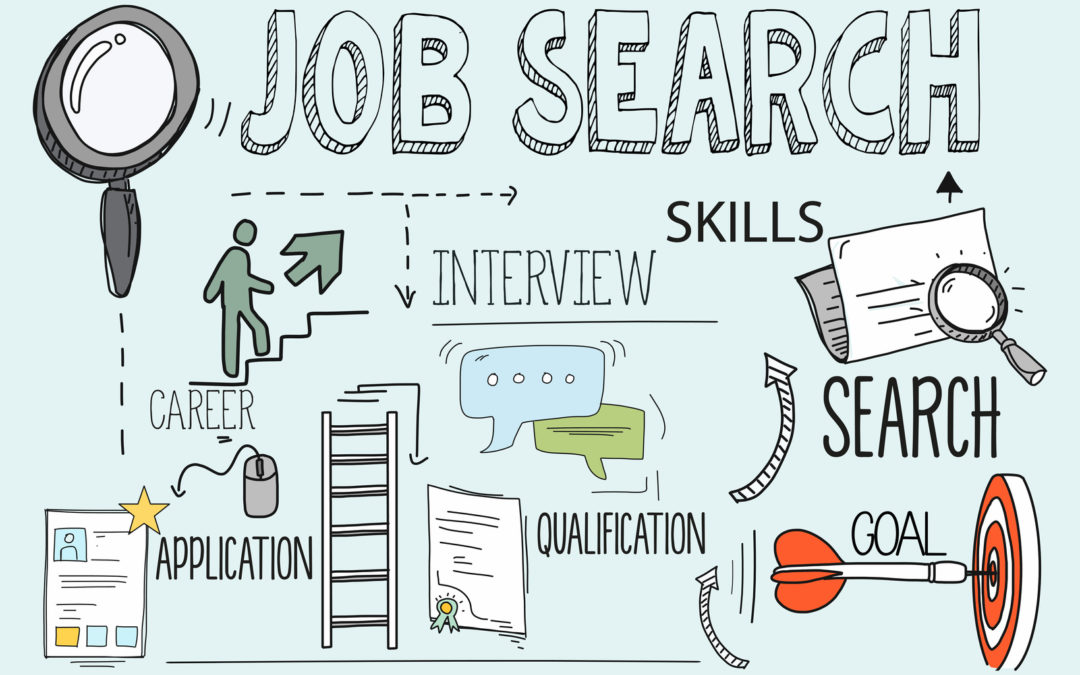
Mar 20, 2018 | Career Coaching, Interview Coaching
The markets show that the economy has improved since the 2008 recession. But many Americans are still struggling to find work.
Even a college education is no longer a guarantee of employment. Among young college graduates, there is a 5% unemployment rate and a 12% underemployment rate.
While Americans are searching for work, many employers struggle to fill open positions. According to these employers, candidates they interview lack the “soft skills” needed to ensure success.
The ability to communicate and demonstrate emotional intelligence in the workplace are both soft skills. Supervisors look for employees with these skills. That’s because they are essential to working well with coworkers, clients, and management.
Let’s take a closer look at what emotional intelligence is and how you can develop it.
What is Emotional Intelligence?
Emotional intelligence is the ability to identify, manage, and understand your own emotions, as well as the emotions of others.
Individuals who have emotional intelligence can recognize their own emotions and feelings. They can also empathize with the emotions of others. These skills enable them to interact and engage with team members, customers, and senior leaders.
Working With Others
In today’s global economy, collaboration is essential. Many workplaces rely on teamwork to develop creative solutions and to get work done.
This makes emotional intelligence a key success factor. Employees with emotional intelligence are better prepared to work on a team. This is because they can handle the unique challenges and stress.
For instance, emotionally intelligent people understand their own strengths and limitations. Being self-aware helps them to understand when to ask for help.
Employees with emotional intelligence are also able to understand that every individual has their own approach to work. Because of this, they respect their coworkers’ needs and habits.
Emotional intelligence also aids workers in managing and resolving conflict. An emotionally intelligent employee will understand their role in contributing to workplace dissension. They will also be able to identify ways to improve their work environment.
Practicing Emotional Intelligence
Some people believe you must be born with emotional intelligence. But the truth is that you can take steps to cultivate it. Practicing emotionally intelligent behavior will assist in training your brain to start thinking in this way.
To improve your emotional intelligence, pay close attention to your own emotions. Let’s say you’re frustrated with a coworker. Try to determine the root cause of that frustration. Focus on understanding your own feelings, rather than trying to control your teammate’s behavior.
Emotional Intelligence in Leadership
Emotional intelligence is an important trait for both employees and employers. To be effective as a manager, it’s important to understand how people manage their emotions while dealing with workplace pressures. This will help managers identify their employees’ needs and create a productive work environment.
Also, it’s crucial for employers to have control of their own emotions. Impatient managers with short tempers often struggle to earn the respect of their employees.
Demonstrating Emotional Intelligence in the Workplace
Understanding emotional intelligence in the workplace can help you nail your next interview. Or, it can assist in securing that promotion you’ve been working so hard to recieve.
If you’d like to learn more about how you can show emotional intelligence on your resume or during interviews, contact us. Our expert career coaches will show you how to succeed by highlighting your strengths.

Feb 13, 2018 | Career Coaching, Resume Writing Tips
Writing a great resume is essential if you want to be hired. 98 percent of job applicants are eliminated during the original resume screening phase.
If you can’t get the interview, how are you going to get the job? You can’t afford to make mistakes, and you especially can’t afford to have these types of resumes land on your potential employer’s desk.
Anything with Misspellings or Bad Grammar
You may think a typo is just a typo. But it’s so much more than that.
Your prospective employer has no idea who you are. When they see spelling and grammar mistakes on your resume, that’s how you will be judged. Mistakes like these communicate to prospective employers that you are either careless or unintelligent.
Make a favorable first impression by taking a few extra minutes to review your resume — it’s time well spent. Simply put, make sure you don’t let one mistake cost you the job.
“Biographical Resumes”
A stellar resume provides all of the information hiring managers need and none of the information they don’t. An example of a bad resume is one that lists every one of your achievements as a filler.
Prospective employers probably don’t care about your SAT scores or the AP classes you took in high school.
A Resume with Gaps that Haven’t Been Explained
Many people have been unemployed at one point or another. So gaps on a resume aren’t uncommon, but that doesn’t mean you don’t need to explain them.
If you have a gap on your resume, you should mention it in the cover letter. Refusing to bring it up may raise a red flag for potential employers, instead of letting you define your own career trajectory.
The best resumes aren’t known for their absence of gaps: they’re known for their ability to openly and honestly explain them. If this applies to you, be sure to discuss any employment gaps in your cover letter.
Anything Poorly Formatted
You might not think the format of your resume is a big deal. But if you care about how prospective employers view you, take the format of your resume seriously.
If you have a poorly formatted resume, you are communicating a lack of attention to detail. Because of this, it’s possible you will not be seen as a serious candidate.
Think about it from your employer’s perspective: a serious candidate would take the extra 30 minutes to look over their resume to make sure it’s free of errors. To prospective employers, a candidate that submits sloppy or poorly formatted career documents are not worthy of consideration.
A Resume that Lacks Focus
We get it: most people take jobs because they need to support themselves. But employers like to think applicants submit employment applications with some grand purpose.
Use your career marketing collateral to demonstrate to employers that you are pursuing a very specific career goal. In doing so, you’ll most likely be perceived as a growth-oriented candidate, which will play a huge role in your future success.
Develop the Right Type/s of Resumes
If you’re interested in crafting an interview-winning resume, you should reach out to the professionals.
We offer everything from resume and cover letter services to LinkedIn Profile development at a competitive price. The job hunt is hard, and scanning your resume for potential mistakes can make it even harder.
If you’re ready to land your next job, contact us today!

Jan 10, 2018 | Career Coaching
Let’s face it. A career change at any age is a challenge.
But a career change at 50? That could be exceptionally challenging.
Older applicants must often compete with younger, tech-savvy millennials. Hiring managers may question their skills or wonder if they can keep up in the modern workplace.
It could also be that you’re not sure what field you want to move into. If that’s the case, a career coach can evaluate your interests and help you choose a new professional path.
Whatever hurdles you’re facing, it’s possible to have a successful career change at 50. Here are five expert tips to make it happen.
How to Have a Successful Career Change at 50
1. Keep Up With Technology
Have you kept up with the latest technologies and trends in your field? If not, you have some catching up to do.
Whatever field you came from (or are trying to break into), you won’t get anywhere unless you’re comfortable with technology.
Are you familiar with LinkedIn? You should be, because 94% of hiring managers use it to find applicants.
Employers want to see an online presence beyond your resume. Start by opening accounts in LinkedIn, Facebook, and Twitter. You should also participate in online discussions and stay active with alumni and industry groups.
2. Highlight Your Mentoring Skills
Some employers may wonder how you’ll respond to a supervisor who’s younger than you.
Put those fears to rest by explaining how well you work with younger colleagues. Use real examples of times when you sought their help with technical or other challenges.
Impress your future boss by demonstrating your willingness to ask for help from someone younger. Then highlight how you were able to coach your junior colleague on leadership or management strategies.
3. Prove You’re Adaptable
Another common misconception is that older applicants are set in their ways and can’t adapt to changing times.
Again, this is the time to shatter those preconceived notions.
During the interview, talk about your flexibility and ways your management style has evolved. This is also a great chance to highlight your technical abilities and knack for learning new skills.
4. Use Professional Contacts
Over the years, you’ve likely built up a network of professional contacts. Don’t be shy about reaching out and letting them know you’re searching for a new job.
As with many areas of life, it’s not always what you know, but who you know. One of your former colleagues may be able to give you the perfect “in” at a new company.
If your contact list isn’t as big as you’d like, don’t despair. Embrace technology and create a compelling profile on LinkedIn to attract potential employers. You could also try sites like Retired Brain for mature, experienced job seekers.
5. Update Your Look
If you’re 55 and you walk into an interview dressed like a 20-year old, no one will take you seriously.
On the other hand, if you walk into an interview wearing the same tweed jacket you’ve had since 1983, no one will take you seriously, either. If you appear dated, employers may also assume you have dated skills.
Your attire should be appropriate for your age but also current and modern. This could involve buying a new suit or blouse or upgrading to a trendier pair of glasses.
Final Thoughts
A career change at 50 is not without challenges, but it is possible.
To compete in today’s market, another asset you will need is a solid resume. We invite you to learn more about our resume services and how they can help you land your dream job – at any age!

Dec 19, 2017 | Career Coaching
Returning to work after an extended leave can feel like an enormous undertaking. How can you possibly manage your home life and a new work life?
How will you handle an interview after spending so much time away?
Returning doesn’t have to be stressful.
Here are five great tips for returning to work that will help you during this time of transition.
1. Ease In Part-time When Returning To Work
Going back to work can be difficult for many reasons. Consider easing into a work routine by starting with a lighter workload.
You’ll have more time to taper your full-time role of parenting and increase your role as an employee if you’ve been a stay-at-home parent. This lessens the effect of your return on your family so it’s not such a drastic change.
Part-time and temporary positions also present the unique opportunity to try out several different employers and positions.
If you’re returning from a long maternity leave, see what options you have with your company.
Some employers are taking a more flexible approach when women return to work after having a baby. Some now offer temporary part-time arrangements.
2. Stay Connected
Staying connected is a multifaceted, ongoing task. It begins during your leave and continues until your return.
Make an effort to stay in touch with associates during your time of absence. This allows you to maintain a relationship with them. You’ll also be aware of changes in the workplace.
When you’re ready to return, let your former associates, friends, acquaintances, and family know that you plan to work again in the near future. New opportunities may be available and they’ll be able to let you know if any might suit you.
3. Be Interview Ready
When you have decided to return to work, have a great resume ready in case any opportunities come up.
If one of those opportunities leads you to an interview, be prepared with a positive attitude and a brief, honest explanation for your hiatus.
Tell prospective employers about your previous experience and also what kind of position you’re interested in currently.
Hiring an interview coach is another great way to go in with confidence.
4. Line Up Your Home Life
Part of what makes returning to work so stressful is dealing with the changes at home.
If you’ll be using childcare, prepare weeks ahead of time. Research childcare options and make arrangements in advance.
Introduce your child to their new routine before you actually return to work. This includes introducing the new schedule at home and getting them used to going to a different place daily.
5. Keep Your Resume And Your Skills Fresh with New Experiences
Being away from work doesn’t mean being completely out of the game. There are many ways to build on your experience and expand your knowledge while you’re absent.
Taking classes is an excellent way to brush up on your skills. You’ll be able to stay current on changes in technology and industry practices.
Volunteering is a good way to keep your work and communication skills sharp as well.
Don’t forget the skills you’ve gained during your leave. Personal growth is important and it’s likely you’ve grown in many communication and relationship areas.
Return With Confidence
Visit our website to learn more about returning to work, advancing your career, and sailing through tough interviews.
We can also help you craft a resume that reflects your skills and abilities.

Dec 5, 2017 | Career Coaching
If you’re looking for a job and having trouble finding one, maybe it’s time to consider working with recruitment companies.
Cast a wide net in your employment search by utilizing the help of recruitment services. You’ll expand your reach, and you might even discover new job opportunities.
While recruiters are not career counselors, they are there to help you once you know what you want to do and which jobs you would like to target. Also, there are various types of recruiters.
We’ve conducted the recruitment research for you and have created the ultimate guide to working with one of these companies. Here’s what you need to know:
1. Be Prepared and Remain Positive When Talking to Recruitment Companies
If you don’t currently have a job, some recruitment companies might see that as a negative sign.
In today’s economy, sometimes recruiters can be extra picky just like many employers are about candidate recruitment and selection.
You will need to combat some of the unemployment bias that will inherently work against you in the business world. Engage in productive, positive, resume-building activities while you are unemployed. Consider volunteering, professional development or even consulting.
By remaining active, you’ll be able to put a positive spin on how you’ve spent your time, while encouraging recruiters to work with you.
2. Tailor Your Resume and Cover Letter for Recruitment Companies
Resumes and cover letters are important and can make all the difference as it relates to attracting and engaging the services of top-notch recruiters. Check into the standards for each recruiting firm and ask about their resume and cover letter preferences.
Browse recruitment company websites for information on how you can tailor your career marketing collateral to their requirements. What’s more, you can also find out how to submit your resume and cover letter. Some companies want to be contacted by phone and others prefer e-mail submissions.
While it’s important to be persistent, it’s equally as important to not be annoying. Don’t be a pest, but do follow up and confirm that they’ve received your information.
Maintaining Visibility
- Write a plethora of articles.
- Maintain active involvement in highly visible projects.
- Get involved in your local community.
- Create a professional presence online through Twitter, Facebook, and LinkedIn.
- Design your own website or blog to help you stand out from the crowd.
Be Bold
Ambitious people looking for the perfect job will find recruitment companies to be a great source of help.
However, it’s important to be prepared, be positive when you meet with them, and tailor your career marketing collateral to their specifications.
It’s essential to remain visible and easy to find when it comes to recruitment. Follow these simple tips and you’ll be on your way to a great job.
For help with your resume and tips on how to optimize your career search get in touch!

Nov 14, 2017 | Career Coaching
Are you overwhelmed by the prospect of finding your first job out of college?
While finding that first job can be a frightening experience, especially when the job market is tight, it’s never too early to begin your search.
According to a survey conducted for the book, There is Life After College, two-thirds of college graduates struggle to launch their careers.
If you want to be a part of the one-third who doesn’t struggle, you need to take steps to prepare for the job search process.
In this article, we’ll detail 5 tips for finding your first job out of college.
1. Create a LinkedIn Profile to Land That First Job out of College
Many college students are under the impression that LinkedIn profiles are only for established professionals.
But really, the truth is that it’s a good idea to create a profile during your college years, even if it’s just the bare bones.
Creating a LinkedIn profile helps you establish connections, stand out from the competition, and demonstrate to employers that you’re serious about your job search.
Don’t worry if you don’t (yet) have extensive experience (or any, for that matter) in your field. You can beef up your profile by listing your extracurricular activities, awards, and part-time jobs.
2. Develop a Compelling Resume and Cover Letter
A resume is much more than a list of your previous jobs.
If you put the effort into creating a resume and cover letter that stands out, employers may choose you over someone with more experience.
Don’t worry if your resume isn’t chock-full of professional experience. Highlighting relevant coursework, summer internships, part-time jobs, and special skills can give you a leg up on the competition.
While it’s likely you will only need one resume, make sure you’re tailoring your cover letters to each employer.
The resume and cover letter writing process can be extremely overwhelming, so you may want to consider seeking out resume writing services for some help.
3. Take Advantage of Career Counseling Services
It’s also important to take advantage of your campus’ career counseling department.
A college career counselor can be an invaluable resource when it comes to defining your job search and finding relevant employers. Oftentimes, career counselors have resources for job openings that many people aren’t aware of.
Plus, these services are free of charge.
4. Consider Internships
While many college students shy away from internships because they’re often unpaid, an internship can be a great introduction to the working world.
Having an internship on your resume will show full-time employers that you have the ability to succeed after college. Plus, some internships turn into full-time jobs.
In fact, not having an internship can actually be a huge setback.
5. Keep an Open Mind and Keep Applying
While you probably have a dream job in mind, don’t expect to land that job right after you graduate.
Keep an open mind about the jobs you interview and apply for, as your first job can always serve as a stepping stone to your dream job.
Don’t get discouraged if you don’t hear back from employers right away or at all. Job applications are a learning opportunity and you should aim to apply to a few every day until you land one.
First Job Out of College: Wrap Up
Follow these tips and you’ll be well on your way to landing your first job out of college.
And once you start hearing back from prospective employers, it’s time to get ready for interviews. Check out this article detailing the top mistakes to avoid while interviewing.
OTHER RESOURCES:
Recent college graduates face a tough job market : Here are your options






